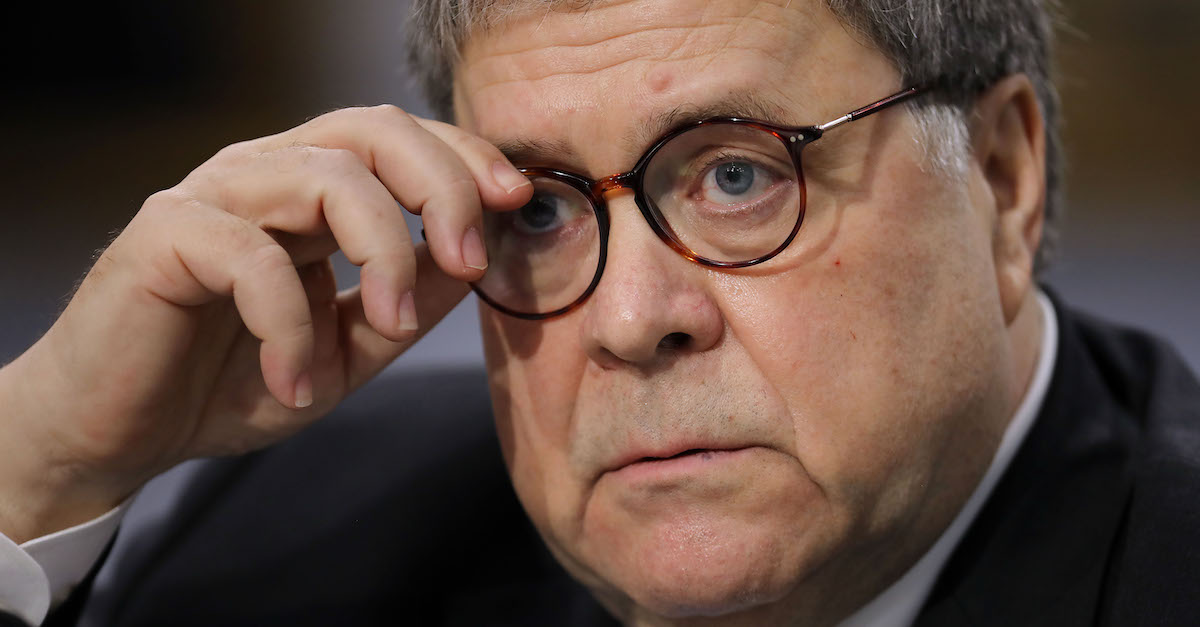
The Federal Communications Commission (FCC) on Thursday released a draft order to approve Ligado Networks LLC’s efforts to lay the groundwork for a mobile broadband network that would support 5G advancements. Attorney General William Barr saw fit to praise the move–even as the Pentagon expressed its quibbles—because it means that the U.S. would beat Communist China to the punch.
“I applaud FCC Chairman Pai’s proposal to make available L-band spectrum, to be used together with C-band spectrum, for deployment of advanced wireless services, including 5G. As I said in my speech at the Center for Strategic and International Studies, swift FCC action on spectrum is imperative to allow for the deployment of 5G,” Barr said in a statement. “This is essential if we are to keep our economic and technological leadership and avoid forfeiting it to Communist China. Freeing up L-band spectrum for use in tandem with the C-band, as the Chairman proposes, should greatly reduce the cost and time it will take to deploy 5G throughout the country and would be a major step toward preserving our economic future. I hope the full Commission moves forward quickly.”
Barr spoke in dire terms as recently as February about the implications of China’s 5G ascendancy.
“I recall the observation of one of my classmates in arguing that it was China that posed the greatest threat. He said, ‘Russia wants to conquer the world. We can deal with that. China wants to own the world. That is going to be more challenging to deal with.’ There was a certain truth in that,” Barr remarked at the Department of Justice’s China Initiative Conference.
He did not stop there:
It has been estimated that the Industrial Internet powered by 5G could generate new economic opportunities of $23 trillion by 2025. If China establishes sole dominance over 5G, it will be able to dominate the opportunities arising from a stunning range of emerging technologies that will be dependent on, and interwoven with the 5G platform.
From a national security standpoint, if the Industrial Internet becomes dependent on Chinese technology, China would have the ability to shut countries off from technology and equipment upon which their consumers and industry depend. The power the United States has today to use economic sanctions would pale by comparison to the unprecedented economic leverage we would be surrendering into the hands of China.
It is important to understand how 5G will enable a revolution in industrial processes. Some Americans think that all we are talking about here is analogous to the shift from 3G to 4G in our wireless networks. But we are talking about a change that is far more fundamental than merely increasing download speeds for movies and websites.
FCC Chairman Ajit Pai said in a statement on Thursday that the approval of Ligado’s application to promote 5G and Internet of Things (IoT) services was years in the making.
“We have compiled an extensive record, which confirms that it is in the public interest to grant Ligado’s application while imposing stringent conditions to prevent harmful interference,” Pai said. “The draft order that I have presented to my colleagues would make more efficient use of underused spectrum and promote the deployment of 5G and Internet of Things services.”
Pai said that he “appreciate[d] the concerns that have been raised by certain Executive Branch agencies,” but said it’s the FCC’s “duty to make an independent determination based on sound engineering.”
The announcement, and Barr’s support thereof, comes at an interesting time. The coronavirus pandemic has given rise to conspiracy theories that 5G’s rise has caused or contributed to COVID-19. Scientists say that’s “rubbish,” but that hasn’t stopped the notion from spreading, nor stopped people from—in some cases—taking drastic and violent measures.
[Image via Chip Somodevilla/Getty Images]